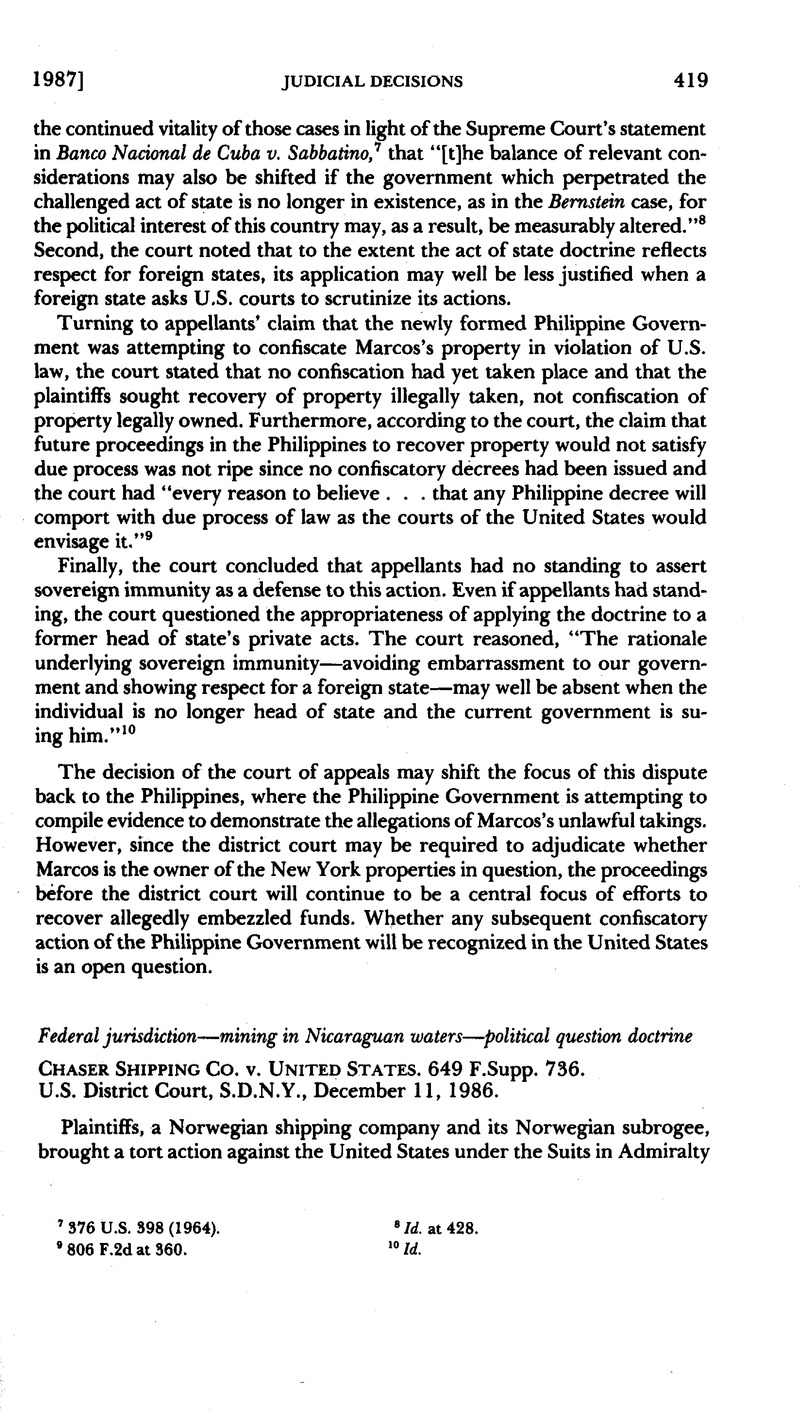No CrossRef data available.
Published online by Cambridge University Press: 27 February 2017

1 369 U.S. 186 (1962).
2 For the purposes of ruling on defendant’s motion to dismiss, the court accepted plaintiffs’ allegations that the damages to the Iver Chaser were caused by mines placed in the Nicaraguan harbor by the Central Intelligence Agency, with the approval of the President of the United States.
3 649 F.Supp. 736, 738.
4 597 F.Supp. 613 (D.D.C. 1984) (appeal pending). Following the destruction of Korean Air Lines Flight 007 by the Soviet Union, the plaintiffs filed a suit for damages based on the U.S. Government’s: (1) deployment of military aircraft near Flight 007; (2) failure to track the flight; and (3) failure to warn the crew of the flight’s departure from its proper course. In dismissing the complaint, the court concluded that to “attempt to decide such a matter without the necessary expertise and in the absence of judicially manageable standards would be to entangle the court in matters [military in nature] constitutionally given to the executive branch.” Id. at 616.
5 The court noted that the classified information would not be provided voluntarily and is clearly exempt from disclosure under the Freedom of Information Act, 5 U.S.C. §552(b)(1)(A) (1982), as secret national defense or foreign policy information. .
6 The court relied on the Supreme Court decision in Chicago & South Air Lines v. Waterman Steamship Corp., 333 U.S. 103, 111 (1948):
[T]he very nature of executive decisions as to foreign policy is political, not judicial. Such decisions are wholly confided by our Constitution to the political departments of the government, Executive and Legislative. They are delicate, complex and involve large elements of prophecy. They are and should be undertaken only by those directly responsible to the people whose welfare they advance or imperil. They are decisions of a kind for which the Judiciary has neither aptitude, facilities nor responsibility and which has long been held to belong in the domain of political power not subject to judicial intrusion or inquiry.
7 The court also determined that it should avoid the acute “danger of foreign citizens’ using the courts in situations such as this to obstruct the foreign policy of our government.” 649 F.Supp. at 740 (quoting Sanchez–Espinoza v. Reagan, 770 F.2d 202, 209 (D.C. Cir. 1985)).
8 591 F.Supp. 1332, 1336 (S.D.N.Y. 1984), summarized in 79 AJIL 746 (1985), aff’d, 755 F.2d 34 (2d Cir. 1985).
9 597 F.Supp. 613 (D.D.C. 1984).